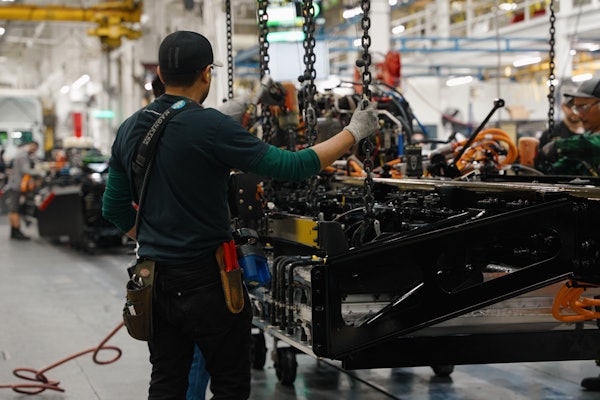
After more than a year since the United States-Mexico-Canada Agreement (USMCA) was signed by the three countries, and months in political purgatory as U.S. lawmakers and President Donald Trump negotiated aspects of the pact, the USMCA gained approval this week from House Democrats. The pact presumably will be ratified by the U.S. Congress next year.
American Truckers Association (ATA) President Chris Spear says the agreement is a victory as it marks a clear path to the agreement’s ratification.
“The vast majority of trade in North America moves on truck, with $772 billion worth of goods crossing our borders with Mexico and Canada every year. USCMA will provide the certainty our industry needs while ensuring the United States remains competitive on the world stage,” Spear says. “In a Washington that has been gridlocked by partisan politics, this is a great example of what is possible in creating consensus around good policy.”
The USMCA, which was signed in October 2018, is an update of the North American Free Trade Agreement and would save the $1.2 trillion open-trade zone it created between the countries in 1994. Although the USMCA had been signed, it still needed to be ratified by the three countries.
The revised USMCA was signed by U.S. trade representative Robert Lighthizer, Canadian Deputy Prime Minister Chrystia Freeland and Mexico Undersecretary for North America Jesús Seade, the Wall Street Journal reports.
“Trade is a tremendous driver of revenue and creator of jobs in trucking, which is why passing USMCA has been so important to our industry,” says ATA Chairman Randy Guillot, president of Triple G Express. “Trade with our two closest neighbors supports nearly 90,000 Americans in trucking-related jobs and generates $12.62 billion in annual revenue for our industry. As USMCA deepens our economic ties, we expect these figures — like our economies — to continue to increase.”
While several facets of the agreement are not known yet because of recent negotiations, one of the aims is to have more car and truck parts made in North America. To qualify for zero tariffs, a car or truck must have 75 percent of its components manufactured in Canada, Mexico or the United States, an increase from the current requirement of 62.5 percent, according to a report by The Washington Post.
Also, cars and trucks must have at least 30 percent of the work on the vehicle done by workers earning $16 an hour, The Washington Post states.











